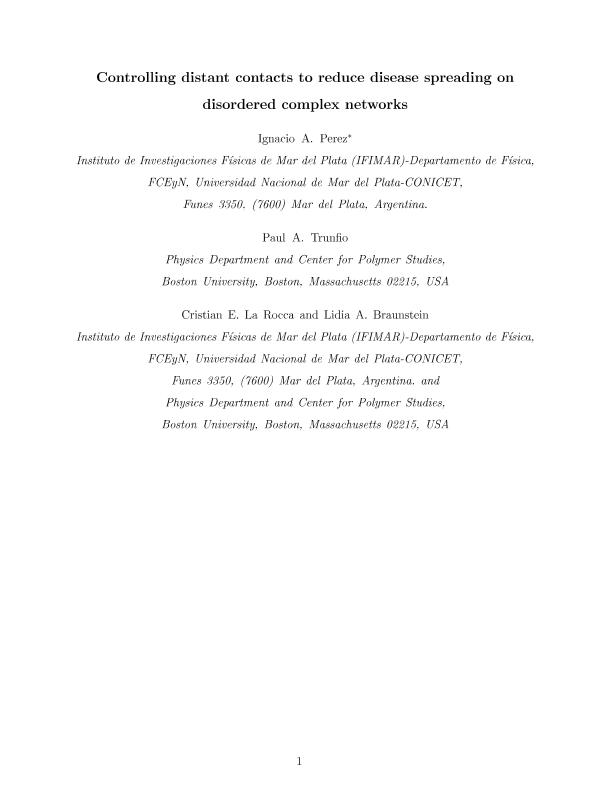Artículo
Controlling distant contacts to reduce disease spreading on disordered complex networks
Fecha de publicación:
05/2020
Editorial:
Elsevier Science
Revista:
Physica A: Statistical Mechanics and its Applications
ISSN:
0378-4371
Idioma:
Inglés
Tipo de recurso:
Artículo publicado
Clasificación temática:
Resumen
In real social networks, person-to-person interactions are known to be heterogeneous, which can affect the way a disease spreads through a population, reaches a tipping point in the fraction of infected individuals, and becomes an epidemic. This property, called disorder, is usually associated with contact times between individuals and can be modeled by a weighted network, where the weights are related to normalized contact times ω. In this paper, we study the SIR model for disease spreading when both close and distant types of interactions are present. We develop a mitigation strategy that reduces only the time duration of distant contacts, which are easier to alter in practice. Using branching theory, supported by simulations, we found that the effectiveness of the strategy increases when the density f1 of close contacts decreases. Moreover, we found a threshold f̃1=Tc∕β below which the strategy can bring the system from an epidemic to a non-epidemic phase, even when close contacts have the longest time durations.
Palabras clave:
COMPLEX NETWORK
,
EPIDEMIC MODELING
,
PERCOLATION
,
SIR MODEL
Archivos asociados
Licencia
Identificadores
Colecciones
Articulos(IFIMAR)
Articulos de INST.DE INVESTIGACIONES FISICAS DE MAR DEL PLATA
Articulos de INST.DE INVESTIGACIONES FISICAS DE MAR DEL PLATA
Citación
Pérez, Ignacio Augusto; Trunfio, Paul A.; la Rocca, Cristian Ernesto; Braunstein, Lidia Adriana; Controlling distant contacts to reduce disease spreading on disordered complex networks; Elsevier Science; Physica A: Statistical Mechanics and its Applications; 545; 5-2020; 1-18
Compartir
Altmétricas




